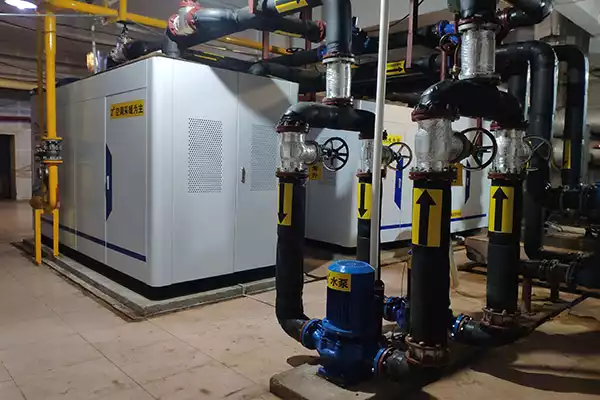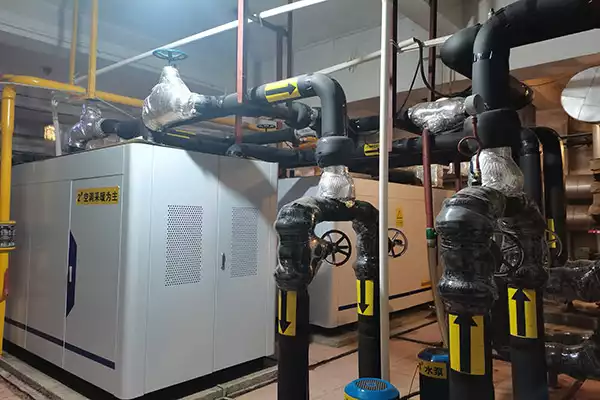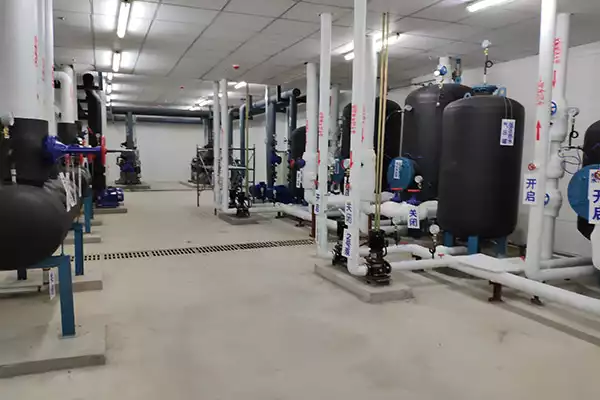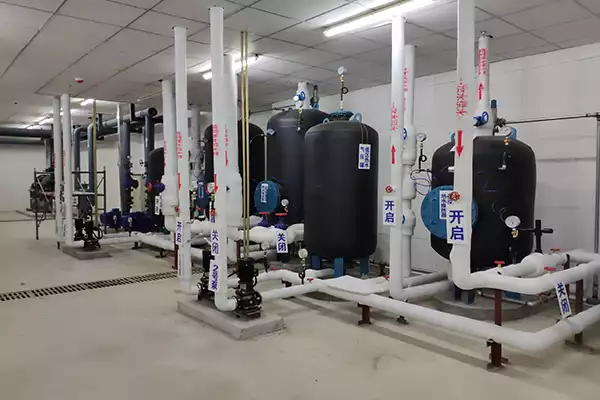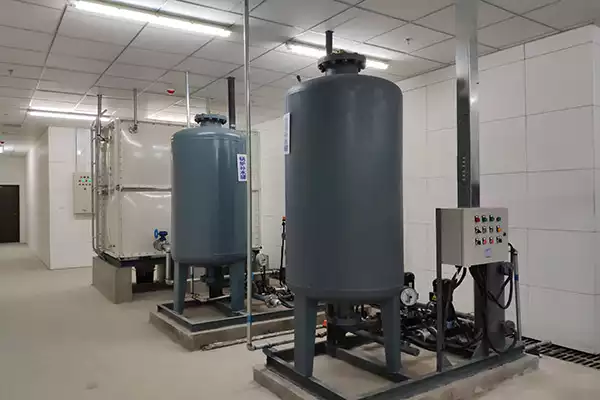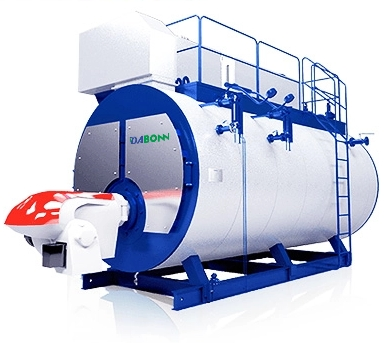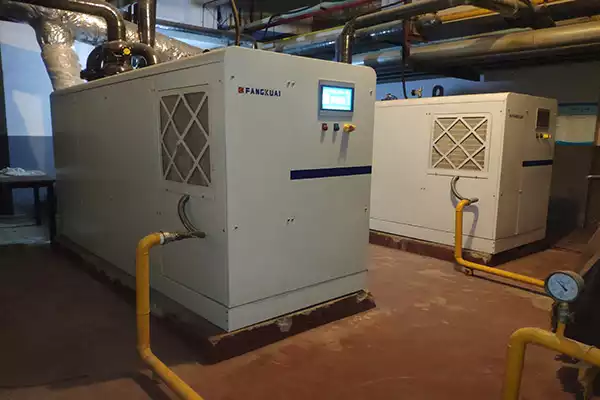
Central heating boilers play a pivotal role in keeping our homes warm and cozy during the colder months. If you’re looking to understand what a central heating boiler is, how it works, the various types available, and the costs associated with them, you’ve come to the right place. In this comprehensive guide, we’ll break down the essentials for you.
What is a Central Heating Boiler?
A central heating boiler, commonly known as a boiler, is a crucial component of a central heating system. It’s responsible for heating water, which in turn circulates through pipes and radiators to provide warmth throughout your home. Boilers come in various types, each with its unique features and fuel sources.
How Does a Central Heating Boiler Work?
A central heating boiler operates by heating water and distributing it through a network of pipes and radiators. Here’s a simplified breakdown of the process:
- Fuel combustion: Depending on the type of boiler, it uses different fuels like gas, oil, electricity, biomass, or LPG to produce heat.
- Heat exchange: The heat generated from burning the fuel is transferred to a heat exchanger inside the boiler.
- Water heating: Water from your home’s supply is pumped into the heat exchanger and heated using the generated heat.
- Circulation: The heated water is then circulated through pipes, radiators, or underfloor heating systems, releasing heat and warming up your living spaces.
- Thermostat control: A thermostat regulates the temperature, ensuring your home remains at your desired comfort level.
Types of Central Heating Fuels.
Central heating boilers can run on various fuels, each with its own set of advantages and disadvantages. Choosing the right fuel type for your central heating system is a crucial decision that impacts both your comfort and your environmental footprint.
Gas central heating boiler
Advantages:
- Efficiency: Gas boilers are highly efficient, converting a large portion of the fuel into heat, making them cost-effective to operate.
- Convenience: Natural gas is widely available in urban areas, ensuring a constant fuel supply.
- Quick heating: Gas boilers heat water rapidly, providing fast and consistent warmth in your home.
- Lower carbon emissions: Natural gas is one of the cleaner fossil fuels, emitting fewer greenhouse gases than oil or coal.
Disadvantages:
- Dependency on gas supply: Availability of natural gas is limited in rural areas, necessitating alternative fuel sources.
- Carbon emissions: While cleaner than some other fuels, natural gas still produces carbon dioxide when burned.
Oil central heating boiler
Advantages:
- Versatility: Oil boilers are suitable for homes without access to a natural gas supply, providing heating options in rural areas.
- High energy density: Heating oil contains a high energy density, meaning it produces a lot of heat per unit of fuel.
- Long-lasting: Oil boilers tend to have a longer lifespan compared to some other boiler types.
Disadvantages:
- Storage requirements: You need to store heating oil on your property, which requires space and proper tank maintenance.
- Environmental impact: Heating oil combustion releases greenhouse gases and contributes to air pollution.
- Fluctuating prices: Oil prices can be volatile, leading to unpredictable heating costs.
Electric central heating boiler
Advantages:
- Clean energy: Electric boilers produce no direct emissions, making them environmentally friendly, especially if your electricity comes from renewable sources.
- Compact size: Electric boilers are often smaller and can be installed in tight spaces.
- Quiet operation: They operate quietly and require little maintenance.
Disadvantages:
- High operating costs: Electricity is generally more expensive than gas or oil, resulting in higher heating bills.
- Dependence on the grid: The reliability of electric central heating depends on the stability of the electrical grid.
- Inefficient in extreme cold: Electric boilers may struggle to provide adequate heat in very cold climates.
Biomass central heating boiler
Advantages:
- Sustainability: Biomass boilers use organic materials like wood pellets or logs, which can be renewable and carbon-neutral.
- Cost-effective fuel: Biomass fuels are often cheaper than fossil fuels.
- Low carbon emissions: Biomass combustion releases carbon dioxide, but the carbon is part of a natural cycle, making it a greener choice.
Disadvantages:
- Storage space: Like heating oil, biomass fuels require storage space.
- Ash disposal: Biomass boilers produce ash that needs to be disposed of properly.
- Maintenance: They may require more maintenance than some other boiler types.
LPG central heating boiler
Advantages:
- Clean fuel: LPG is a clean-burning fuel with lower emissions compared to oil or coal.
- Portability: LPG is available in portable cylinders, making it suitable for areas without natural gas connections.
- High efficiency: LPG boilers are highly efficient, reducing energy waste.
Disadvantages:
- Fuel storage: Like oil, LPG requires on-site storage, which may not be ideal for all households.
- Fuel costs: LPG prices can fluctuate, affecting heating expenses.
- Limited availability: LPG may not be readily available in remote regions.
Types of Central Heating Boilers.
Meanwhile, the central heating boilers come in various types too, each designed to meet specific heating and hot water needs. Understanding the advantages and disadvantages of different boiler types is crucial when choosing the right one for your home.
Condensing boiler
Advantages:
- High efficiency: Condensing boilers are exceptionally efficient, as they capture and reuse heat from exhaust gases, reducing energy wastage.
- Lower fuel bills: Due to their efficiency, condensing boilers can lead to significant cost savings on fuel bills.
- Reduced carbon emissions: They produce fewer greenhouse gas emissions compared to non-condensing boilers.
- Compact size: Condensing boilers are often compact and suitable for smaller spaces.
Disadvantages:
- Initial cost: Condensing boilers are typically more expensive to purchase and install than non-condensing counterparts.
- Complex installation: Installation may be more intricate, requiring specialized knowledge and equipment.
- Maintenance: They may require more maintenance due to the complexity of their components.
Combi boiler (Combination boiler)
Advantages:
- Space-saving: Combi boilers combine heating and hot water functions in one unit, saving space in your home.
- On-demand hot water: They provide hot water instantly, eliminating the need for a separate hot water tank.
- Efficiency: Combi boilers are generally highly efficient, as they heat water only when needed.
- Lower energy bills: Reduced energy wastage leads to lower heating costs.
Disadvantages:
- Hot water limitations: Combi boilers may struggle to supply hot water to multiple fixtures simultaneously.
- Flow rate variability: The hot water flow rate can vary based on the model, affecting the user experience.
- Not ideal for larger homes: In larger homes with high hot water demand, a combi boiler may not be sufficient.
System boiler
Advantages:
- Hot water storage: System boilers work with an external hot water cylinder, ensuring a constant supply of hot water to multiple outlets.
- High efficiency: They are energy-efficient, especially when combined with modern heating controls.
- Suitable for larger homes: System boilers are ideal for larger households with high hot water demand.
- No need for loft tanks: They don’t require a loft tank, freeing up space in your home.
Disadvantages:
- Installation complexity: Installation can be more complicated and costly, involving both a boiler and a hot water cylinder.
- Space requirements: You need space for the hot water cylinder, which may not be suitable for all homes.
- Slower hot water delivery: Hot water may take a bit longer to reach the taps compared to combi boilers.
Heat-only boiler (Regular boiler)
Advantages:
- Compatible with existing systems: Heat-only boilers are often used to replace older boilers in existing heating systems.
- Flexible fuel sources: They can run on various fuels, including gas, oil, and LPG.
- External hot water cylinder: These boilers work with an external hot water cylinder, providing ample hot water for larger households.
- Reliability: Heat-only boilers are known for their reliability and longevity.
Disadvantages:
- Space requirements: Similar to system boilers, heat-only boilers require space for a hot water cylinder.
- Complex installation: Installation can be complex and may require modifications to your existing heating system.
- Higher operating costs: They may have higher operating costs compared to more modern and efficient boiler types.
Central Heating Boiler Sizing Guide.
Sizing a central heating boiler is a complicated process that involves calculating the size of your home and then deciding on how many radiators you want. To get it right, you’ll need to know things like:
- The size of your house (in square feet)
- How many rooms are in it, and what type they are (bedrooms, bathrooms etc.)
For example: if you have a moderately sized home with three bedrooms and a total of 10 radiators. To calculate the boiler size:
- Use a heat loss calculator or hire a professional to perform a heat loss calculation.
- The calculation determines that your heating load is approximately 45,000 BTUs per hour (BTU/hr).
- Based on this calculation, you need a boiler with an output of around 23.2 kW (kilowatts) or 45,000 BTU/hr to adequately heat your home.
| House Size/Type | Number of Radiators | Condensing (combi) Boiler | System (Regular) Boiler |
|---|---|---|---|
| Small (1-2 bedrooms) | 5-10 | 18-24 kW | 20-26 kW |
| Medium (3-4 bedrooms) | 10-15 | 24-34 kW | 26-38 kW |
| Large (5+ bedrooms) | 15+ | 34-45+ kW | 38-50+ kW |
Central Heating Boiler Replacement Guide.
Replacing a central heating boiler is a complex task that should ideally be carried out by a qualified heating engineer or HVAC professional. It involves several steps and safety precautions to ensure a smooth and safe installation. Here’s a general guide on how to replace a central heating boiler.
Note: Before starting, make sure to turn off the gas supply to the old boiler and disconnect the power supply.
1. Select the New Boiler
Choose a high-efficiency boiler that aligns with your heating requirements and fits within your budget. Ensure the new boiler is compatible with your existing heating system components, such as radiators and piping.
2. Remove the Old Boiler
First, you should shut off the gas supply and power to the old boiler. Then, drain the heating system by connecting a hose to the drain valve and opening it. Last, disconnect and remove the old boiler, including all associated pipework and components.
3. Prepare the Installation Site
You need to prepare the location where your new boiler will be installed. At the same time, proper ventilation and clearance must be ensured in accordance with the manufacturer’s instructions and local regulations.
4. Install the New Boiler
You should carefully install your new boiler according to the manufacturer’s instructions. First, connect the air supply line, water inlet pipe, and water outlet pipe. Next, install any required flues or ventilation systems in accordance with regulations. Finally, check to make sure all connections are tight and leak-free.
5. Electrical Connections
If your new boiler requires electrical connections, have a certified electrician handle this part of the installation. Ensuring the electrical connections are safe and up to code is very important.
6. Water and Gas Connections
Connect your new boiler to the heating system and water supply. And perform a thorough check for any gas or water leaks.
7. Rewrite startup and testing
Start the new boiler and check that everything is working properly.
How Much is a Central Heating Boiler?
The cost of a central heating boiler will depend on the size and type of boiler, the location, and the complexity of its installation. The average price for new boilers is between $2,000 to $4,000, excluding installation costs. But this can vary depending on what type of system you need.
What is The Cost of Installing a Central Heating Boiler?
The average cost of installing a central heating boiler is between $1,000 and $2,000 or more. The exact price depends on the size of your home and whether you need additional work done. Sach as replacing your water heater or installing vents in your attic. You can et the best prices from multiple reputable installers.
Conclusion.
In conclusion, a central heating boiler is the heart of your home’s heating system, providing warmth and comfort. The type of boiler you choose, its size, and the quality of installation can significantly impact your home’s energy efficiency and heating costs. If you want to learn about the details and prices of central heating boilers, please contact us at +0086 186-2391-5479.
FAQs.
Is a boiler considered central heat?
Yes, a boiler is a central heating system that distributes heat throughout a home using radiators, baseboard heaters, or underfloor heating. It's a common method for maintaining comfortable indoor temperatures.
Is central heating better than a boiler?
Central heating typically includes a boiler as its core component. The choice between various central heating systems depends on factors like energy efficiency, home size, and hot water needs.
How does central heat work?
Central heating systems work by heating water or air in a central location and distributing the heat throughout a building using pipes or ducts. Radiators or vents in individual rooms then release the heat.
What is the efficiency of a central heating boiler?
The efficiency of a central heating boiler varies depending on its type and model. High-efficiency condensing boilers can achieve efficiency ratings of over 90%, reducing energy consumption and operating costs.
What temperature should a central heating boiler be set at?
The ideal temperature setting for a central heating boiler is typically around 140-160°F (60-70°C) to ensure efficient heat production. However, it can vary based on the specific boiler and heating system design.
Get your best price
Quickly compare 3 FREE quotes
- Engineer quick quote
- The overall delivery speed is fast
- Financial choice
- Low installation costs and cost savings
25 years+ of boiler R&D
More than 20 innovative technologies
